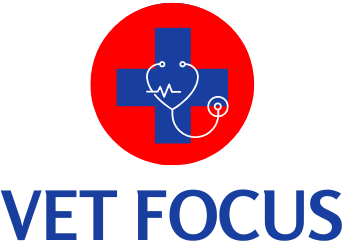Veterinary pharmacology is a specialized field that focuses on the study of how drugs interact with animals' bodies. It involves understanding the effects of drugs on various species, their mechanisms of action, pharmacokinetics (how drugs are absorbed, distributed, metabolized, and excreted), and pharmacodynamics (how drugs exert their effects on the body).
Pharmacokinetics in Veterinary Medicine: Pharmacokinetics involves the study of how drugs are processed by the body. This includes absorption, distribution, metabolism, and excretion. Animals can vary significantly in terms of their physiology, metabolism, and anatomy, so understanding how drugs move through their bodies is crucial for determining appropriate dosages. Factors such as species, age, breed, and health status can all influence drug pharmacokinetics.

Drug Classes and Modes of Action: Just as in human medicine, veterinary pharmacology encompasses a variety of drug classes. These include antibiotics, analgesics, anesthetics, anti-inflammatory drugs, antiparasitic agents, and more. Each class has specific mechanisms of action and is used to target different conditions. Veterinary pharmacologists need to understand these mechanisms to prescribe drugs effectively.
Species-Specific Considerations: Different animal species metabolize drugs differently. What might be safe and effective in one species could be toxic in another. For example, certain drugs used in dogs might not be suitable for cats due to differences in liver enzymes. Pharmacologists must take into account these variations to ensure animals receive the appropriate treatment.
Drug Interactions and Adverse Effects: Animals often receive multiple medications simultaneously, leading to potential drug interactions. These interactions can enhance or inhibit the effects of drugs, affecting their efficacy or safety. Additionally, some animals might experience adverse effects from medications. Understanding potential interactions and adverse effects is vital to prevent unintended consequences.
Clinical Application and Dosing: Determining the right dosage of a drug for a specific animal involves considering factors such as the animal's weight, age, condition, and the severity of the illness. Veterinary pharmacologists work to establish dosage guidelines that provide effective treatment while minimizing the risk of toxicity or ineffective treatment.

Pharmacogenomics in Veterinary Medicine: Pharmacogenomics studies how an individual's genetic makeup influences their response to drugs. In veterinary medicine, this field is gaining traction as researchers identify genetic variations that can impact drug metabolism and efficacy in animals. By understanding an animal's genetic profile, veterinarians and pharmacologists can make more informed decisions about drug selection and dosing. This personalized approach enhances treatment outcomes and reduces the risk of adverse reactions.

Antibiotic Resistance in Veterinary Practice: Antibiotic resistance is a global concern affecting both human and animal health. Veterinary pharmacologists play a pivotal role in addressing this issue by promoting responsible antibiotic use in animals. They study the mechanisms underlying antibiotic resistance, assess the prevalence of resistant strains, and contribute to the development of strategies to preserve the effectiveness of antibiotics in veterinary medicine.
Toxicology and Poison Control: Veterinary pharmacologists often collaborate with toxicologists to identify and manage cases of poisoning in animals. They study the toxic effects of substances on various species, develop antidotes, and provide guidance to veterinarians on treating poisoned animals. Rapid intervention is critical in such cases, and veterinary pharmacologists contribute to emergency protocols and treatments.

Alternative and Complementary Therapies: Alongside conventional pharmaceuticals, veterinary pharmacologists explore alternative and complementary therapies such as herbal remedies, acupuncture, and dietary supplements. They evaluate the safety, efficacy, and potential interactions of these treatments. Integrating these therapies into veterinary practice requires a deep understanding of their mechanisms of action and potential benefits in different animal species.
Veterinary pharmacology is a multidisciplinary field that combines knowledge of pharmacology, veterinary medicine, and animal physiology. These topics represent the diverse and complex landscape of research and application. As the field continues to evolve, researchers and practitioners work together to enhance the well-being of animals and contribute to our broader understanding of health and medicine.
For additional recommendations and guidance about veterinary science as well as practice, Kindly visit our website thevetfocus.com
Also explore Vet Focus's "Flashcards and Quiz Bundle", which includes Veterinary Pharmacology, Equine Health, and Diseases and Conditions. These bite-sized bursts of knowledge are designed to sharpen your learning in the field of veterinary medicine.

